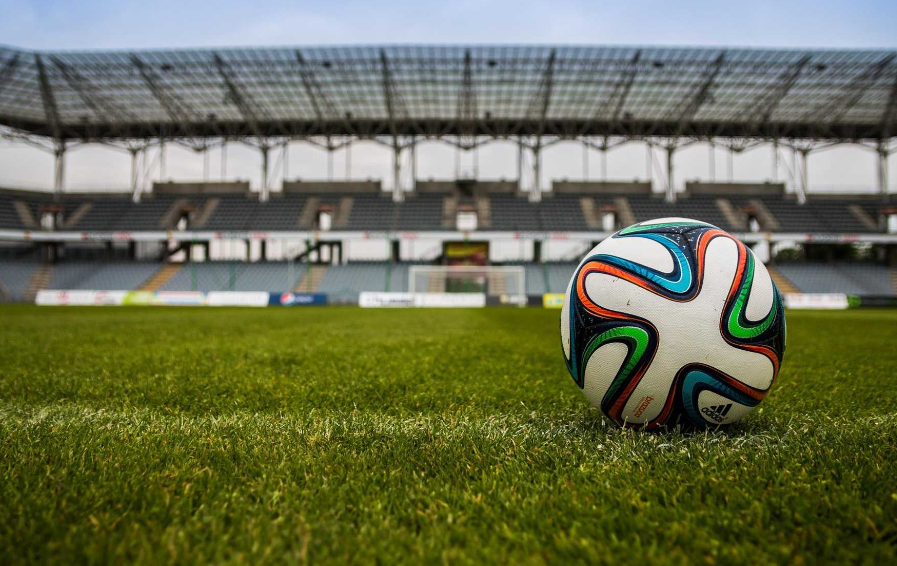Let’s dive into Belgium National Sport. Football holds a special place in the hearts of the Belgians, with its national team achieving remarkable success in recent years. This article explores the deep-rooted passion for football in Belgium, its history, notable players, league structure, fan culture, and its overall impact on Belgian society.
Belgium, located in Western Europe, is a country known for its rich history, cultural heritage, and diverse communities. While it may not have the same global recognition as some of its European counterparts, Belgium has made significant contributions to the world of sports, particularly in football.
Overview of Belgium
Belgium is a small yet vibrant country nestled between France, Germany, the Netherlands, and Luxembourg. With a population of over 11 million people, it boasts a proud tradition of producing talented athletes across various sports disciplines. However, football stands out as the most popular sport in the country, captivating the imagination of Belgians of all ages.
Importance of Sports in Belgium
Sports, including football, play a crucial role in Belgian society. They serve as a unifying force, bringing people from different regions and backgrounds together to cheer for their favorite teams. Additionally, sports promote a healthy lifestyle, instill values such as discipline and teamwork, and provide a platform for individuals to showcase their skills and compete at national and international levels.
The Popularity of Belgium National Sport
Football enjoys immense popularity in Belgium, capturing the hearts of both players and fans alike. It is not uncommon to witness streets filled with children kicking a ball or cafés buzzing with conversations centered around the latest football matches. The passion for the sport is evident throughout the country, making it an integral part of Belgian culture.
History of Football in Belgium
The history of football in Belgium dates back to the late 19th century when the game was introduced by British expatriates. Belgian clubs started to form, and the first national football association, the Royal Belgian Football Association (RBFA), was established in 1895. Since then, football has grown steadily, evolving into a national obsession.
Development of Professional Football in Belgium
In the early years, Belgian football was primarily amateur-based, but the introduction of professionalism in the 1920s revolutionized the sport. Clubs began to invest in infrastructure, training facilities, and player development. This shift paved the way for the rise of professional football leagues and a more competitive environment.
Belgian National Football Team
The Belgian national football team, commonly known as the Red Devils, represents the country in international competitions. The team has a storied history and has participated in numerous FIFA World Cups and UEFA European Championships. The Red Devils have gained recognition as a formidable force in international football.
Successes and Achievements of the Belgian National Team
In recent years, the Belgian national team has experienced unprecedented success. They have consistently ranked among the top teams in the FIFA World Rankings and reached the semi-finals of the 2018 FIFA World Cup. These achievements have not only brought pride to the nation but also increased the global visibility of Belgian football.
Prominent Belgian Football Players
Belgium has produced several talented football players who have made significant contributions to the sport. One of the most revered Belgian footballers is Jean-Marc Bosman, whose legal battle in the 1990s revolutionized player transfers in European football. Other notable players include:
Eden Hazard – Known for his exceptional dribbling skills and creativity, Hazard has enjoyed success both domestically and internationally. He has represented top clubs such as Chelsea and Real Madrid.
Kevin De Bruyne – De Bruyne is renowned for his vision and passing ability. His precision in delivering assists and scoring crucial goals has made him one of the most sought-after midfielders in the world. He currently plays for Manchester City.
Romelu Lukaku – Lukaku’s strength, speed, and goal-scoring prowess have made him a force to be reckoned with. He has excelled at various clubs, including Everton, Manchester United, and Inter Milan.
Vincent Kompany – As a former captain of the Belgian national team and Manchester City, Kompany’s leadership and defensive skills have earned him immense respect. He played a vital role in guiding Belgium to their recent successes.
Thibaut Courtois – Courtois is widely regarded as one of the best goalkeepers in the world. His towering presence and shot-stopping ability have contributed to the success of both the Belgian national team and Real Madrid.
These players, among others, have not only achieved individual recognition but have also played integral roles in shaping the success of Belgian football.
Popular Football Clubs in Belgium
Belgium is home to several prominent football clubs that have garnered loyal fan bases and achieved success both domestically and internationally. Some of the most notable clubs include:
RSC Anderlecht – Anderlecht is the most successful club in Belgian football history, having won numerous league titles and European trophies.
Club Brugge – Club Brugge has a passionate fan base and has consistently performed well in domestic competitions. They have also made appearances in European club competitions.
Standard Liège – Standard Liège has a rich history and has produced talented players who have gone on to achieve success at both national and international levels.
KAA Gent – Gent has experienced a resurgence in recent years, securing league titles and participating in European competitions.
These clubs, along with others, contribute to the excitement and competitiveness of Belgian football.
Football Culture and Fan Support in Belgium
Belgium’s football culture is characterized by passionate and dedicated supporters. Matchdays in Belgium are filled with vibrant atmospheres, colorful banners, and chants resonating throughout the stadiums. The fans’ unwavering support for their favorite clubs and the national team creates an electric atmosphere that adds to the overall spectacle of Belgian football.
Impact of Belgium National Sport
Football holds immense significance in Belgian society, transcending mere entertainment. The sport brings people together, fostering a sense of community and national pride. Whether it’s gathering at local pubs to watch matches or celebrating victories in the streets, football provides a shared experience that unites Belgians from all walks of life.
Moreover, the success of the Belgian national team has had a profound impact on the country’s collective identity. The achievements on the international stage have elevated Belgium’s reputation as a footballing nation and have instilled a sense of confidence and optimism in its people.
Football has also contributed to the economy, with the sport generating revenue through ticket sales, merchandise, and tourism. The popularity of Belgian football has attracted global attention, attracting visitors who want to witness the excitement firsthand.
In addition, football has become a platform for social integration and youth development. Numerous grassroots programs and academies have been established to nurture young talent, providing opportunities for personal growth and skill development. Football’s accessibility and inclusivity enable individuals from diverse backgrounds to participate and benefit from the sport.
Overall, football plays a significant role in shaping the cultural fabric of Belgium, fostering unity, and leaving a lasting impact on society.
Conclusion
Belgium’s national sport, football, has captured the hearts of millions of Belgians and has become deeply ingrained in the country’s culture. From the passionate support for the national team to the success of local clubs, the sport has brought joy, unity, and a sense of identity to the nation.
The history, achievements, and prominence of Belgian football players showcase the country’s talent and dedication to the sport. With a well-structured league system, vibrant fan culture, and state-of-the-art stadiums, Belgium continues to thrive in the world of football.
As Belgium’s national sport, football has transcended boundaries and made a significant impact on society, promoting social integration, fostering a sense of belonging, and contributing to the nation’s economy.
So, whether you’re enjoying a thrilling match at a local pub or cheering on the Belgian national team, football in Belgium is more than just a game; it’s a passion that brings people together.
FAQs
1. Is football the most popular sport in Belgium?
Yes, football is the most popular sport in Belgium, with a large following and a rich history in the country.
2. Who is the most successful football club in Belgium?
RSC Anderlecht holds the record for being the most successful club in Belgian football history, having won numerous league titles and European trophies.
3. What is the Belgian Pro League?
The Belgian Pro League is the top-tier football league in Belgium, consisting of 18 teams competing for the championship.
4. Who are some famous Belgian football players?
Some famous Belgian football players include Eden Hazard, Kevin De Bruyne, Romelu Lukaku, Vincent Kompany, and Thibaut Courtois.
5. How has football impacted Belgian society?
Football has had a profound impact on Belgian society, fostering a sense of community, national pride, and social integration. It has also contributed to the economy and provided opportunities for youth development.
References
- “Belgium National Football Team.” UEFA.com. https://www.uefa.com/teamsandplayers/teams/teamm=7888/profile/
- “Belgian Pro League.” Belgian Pro League Official Website. https://www.proleague.be/en
- “Belgium National Football Team.” FIFA.com. https://www.fifa.com/associations/association/BEL/

